Subscribe to our joint NEWSLETTER for
EUTROPIAN &
COOPERATIVE CITY MAGAZINE


The InclusiveCity project strives to enhance placemaking strategies within the framework of the 15-minute city concept, while placing a strong emphasis on inclusivity. The project emerges from a wealth of prior initiatives addressing various aspects of urban development. It integrates findings from projects like PlaceCity, in which an inclusive approach to placemaking was tested in selected neighbourhoods in Vienna and Oslo. The project is a consortium of partners from Austria, Belgium, Hungary, Italy, Norway, and the Netherlands, funded by Driving Urban Transitions.
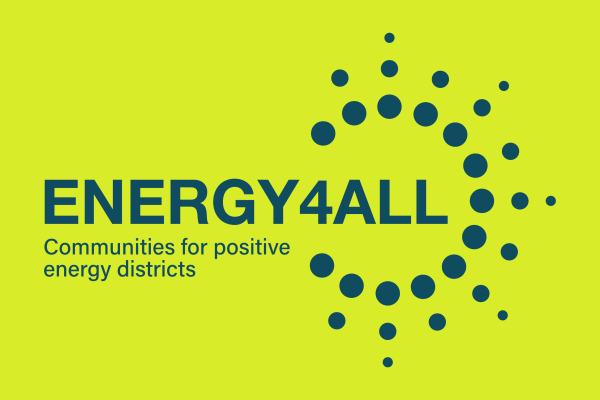
In the ENERGY4ALL project, funded by the Driving Urban Transitions programme, we’re exploring the role of communities in designing and implementating Positive Energy Districts (PEDs) and Energy Communities (ECs). In ENERGY4ALL we’re developing participatory governance practices in the industrial and civic sectors to support the development of positive energy districts. We’re working with local NGOs, cooperatives, municipalities, universities and engineering companies in six pilot projects in Rome (Italy), Styria (Austria), Budapest (Hungary) and Stavanger (Norway) to establish and strengthen local energy communities.
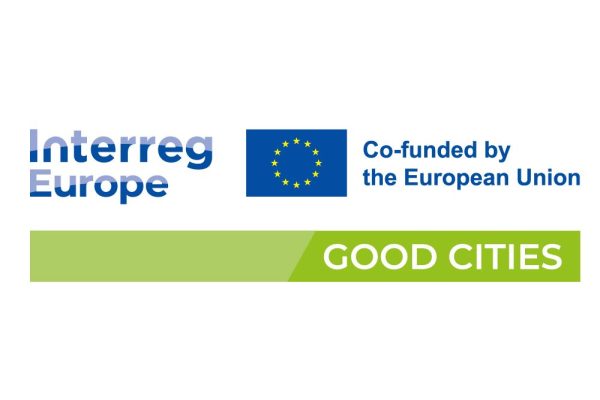
Our transnational project funded by Interreg Europe aims to stimulate new shared economy services for consumer goods in urban environments. The goal is to increase resource-efficiency and access to consumer goods by implementing sharing economy systems, thus achieving a measurable reduction of consumption in cities and a smaller ecological footprint of European citizens. Through coordinating efforts with local stakeholders and leveraging policy instruments, partners aim to significantly reduce the volume of goods and negative consumption-related ecological impacts while improving well-being and social cohesion. The six public authorities within the Good Cities project will define their role in the sharing economy, establish effective governance mechanisms, learn from and develop good practices, and foster a culture of cooperation.

Co-PED addresses the need for innovative financial and organisational models in energy communities, with a focus on Social and Cultural Centres (SCCs) as key actors of Positive Energy Districts (PEDs). By helping SCCs in strengthening the role of communities in the energy transition, Co-PED aims to enhance collaboration between energy producers and consumers, encourage community participation, and support democratic decision-making and social inclusion. The Co-PED consortium—a diverse network of SCCs, research institutions, civic groups, and energy companies—will create eight Urban Living Labs (ULLs) across urban, peri-urban, and rural areas to explore SCCs’ role in the green urban transition, while also developing policy recommendations for advancing the energy transition. Co-PED is funded by the Driving Urban Transitions programme.
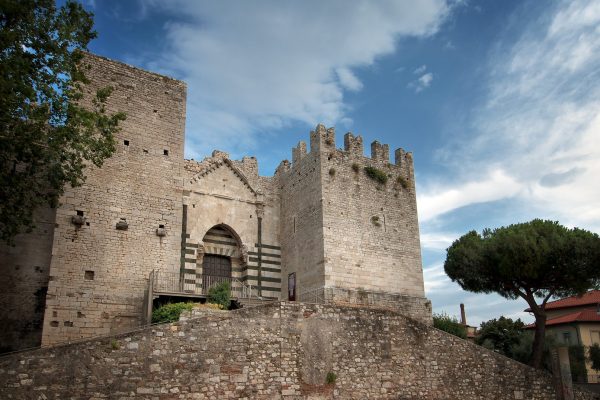
EPIC (Experience Prato Industrial Culture), funded the European Urban Initiative redefines tourism in Prato by showcasing its rich industrial heritage alongside cultural attractions. Through collaborations with local businesses and the community, EPIC creates year-round tourism experiences that blend real-life and AI-driven virtual reality, promoting sustainability, accessibility, and enhancing visitor engagement. Prato is emerging as a destination in its own right, though many visitors stay briefly, offering limited economic benefits to the city. To boost sustainable growth, Prato is reimagining tourism by enhancing its cultural appeal, leveraging digital tools, and adopting circular business models. Through community-driven initiatives and workforce development, Prato aims to create an inclusive and eco-friendly future for the residents.
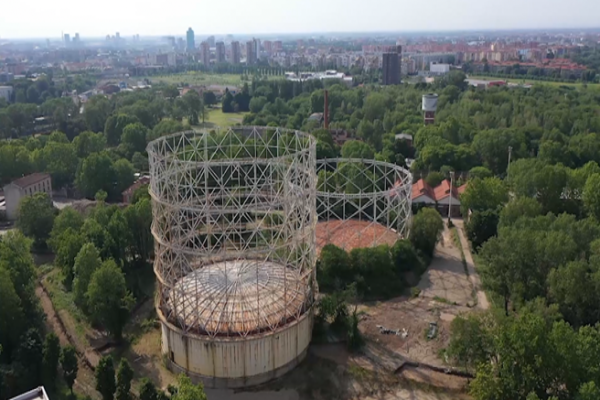
GOCCIA, funded by the European Urban Initiative, is transforming a former industrial site in northwest Milan into an innovative green space where the environment plays an active role in design. Once a contaminated gas production site, the area has naturally rewilded over the last 30 years. GOCCIA builds on this spontaneous ecosystem, using plant-micro organism processes for natural soil cleanup and creating new nature-based solutions. Key outcomes include a new green space for citizens, a model for community-inclusive ecological restoration, and a pioneering approach to interspecies collaboration and sustainable design.

The FOOTPRINTS project, funded by European Urban Initiative, and led by the Municipality of Ravenna, promotes sustainable tourism through collaborative governance with local communities and service providers. It fosters responsible choices via gamification, nudging, and community engagement, aiming to create inclusive, circular tourism experiences while improving Ravenna’s mobility system. By engaging local stakeholders and leveraging digital platforms, the project seeks to minimize ecological footprints, improve social well-being, and encourage tourists to act as “temporary citizens.”
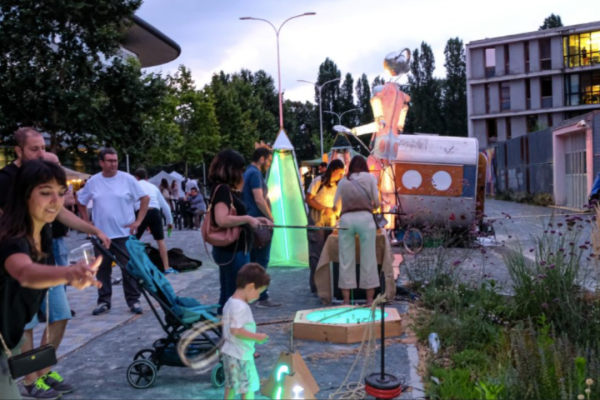
The 2Nite project, funded by URBACT, aims at improve urban safety after dark, by collaborating with communities and introducing new nighttime services, it revitalizes public spaces and enhances residents’ sense of security. 2Nite’s innovative, community-driven approach enhances nighttime safety by revitalizing public spaces and fostering social cohesion. Adaptable to other cities, its key strategies include engaging local stakeholders through co-design, revitalizing urban spaces to improve livability, supporting 19 community-led projects for nighttime activities, and using data-driven tools like the Urban Data Platform to measure and predict safety perceptions. By integrating urban regeneration, social innovation, and sustainable policies, 2Nite offers a transferable framework for creating safer, more inclusive, and vibrant cities after dark.
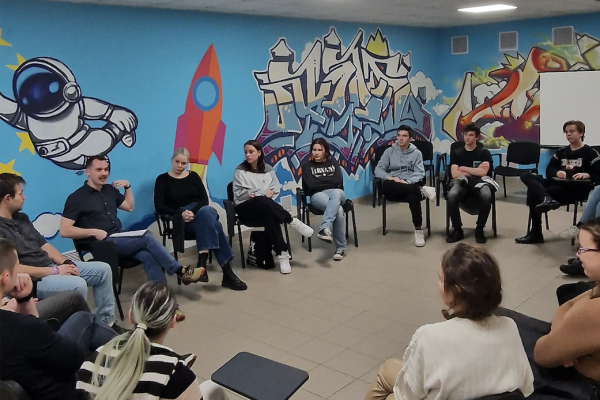
YoReC, an Erasmus+ funded initiative, empowers young people to take an active role in building inclusive, resilient, and sustainable communities and democracies across Europe. By combining innovative tools, storytelling, and networking, YoReC builds youth engagement, civic participation, and social cohesion and as a result, strengthens democracy. Through collaboration with diverse partners, the project creates frameworks and digital resources that support local communities and address shared challenges like sustainability, democracy, and inclusion.
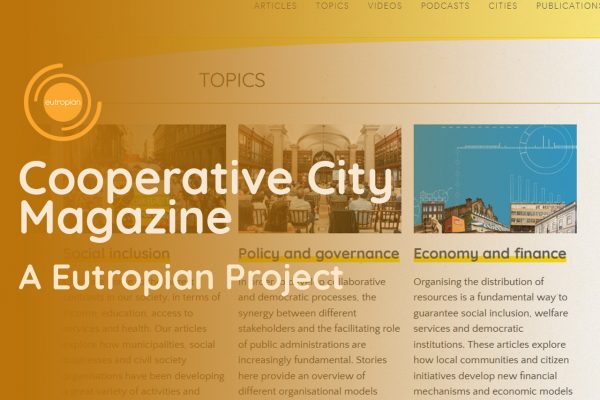
The Cooperative City Magazine is a project run by Eutropian, based in Vienna, Austria. The company is working with various European cities and partners in order to improve the urban tissue, involve citizens and defend their rights to the city. This online magazine is collecting and sharing promising practices from European cities. By focusing on the experiences of those who make, transform and enhance our cities, the magazine addresses their relationships, their challenges and their successes in bringing forward more inclusive and resilient cities. The Cooperative City Magazine is the result of the joint effort of many different professionals, who collectively create this experiment. Our aim is to bring to our readers novel contents on how locally rooted development projects shape our cities.
| Cookie | Duration | Description |
|---|---|---|
| cookielawinfo-checkbox-analytics | 11 months | This cookie is set by GDPR Cookie Consent plugin. The cookie is used to store the user consent for the cookies in the category "Analytics". |
| cookielawinfo-checkbox-functional | 11 months | The cookie is set by GDPR cookie consent to record the user consent for the cookies in the category "Functional". |
| cookielawinfo-checkbox-necessary | 11 months | This cookie is set by GDPR Cookie Consent plugin. The cookies is used to store the user consent for the cookies in the category "Necessary". |
| cookielawinfo-checkbox-others | 11 months | This cookie is set by GDPR Cookie Consent plugin. The cookie is used to store the user consent for the cookies in the category "Other. |
| cookielawinfo-checkbox-performance | 11 months | This cookie is set by GDPR Cookie Consent plugin. The cookie is used to store the user consent for the cookies in the category "Performance". |
| viewed_cookie_policy | 11 months | The cookie is set by the GDPR Cookie Consent plugin and is used to store whether or not user has consented to the use of cookies. It does not store any personal data. |
